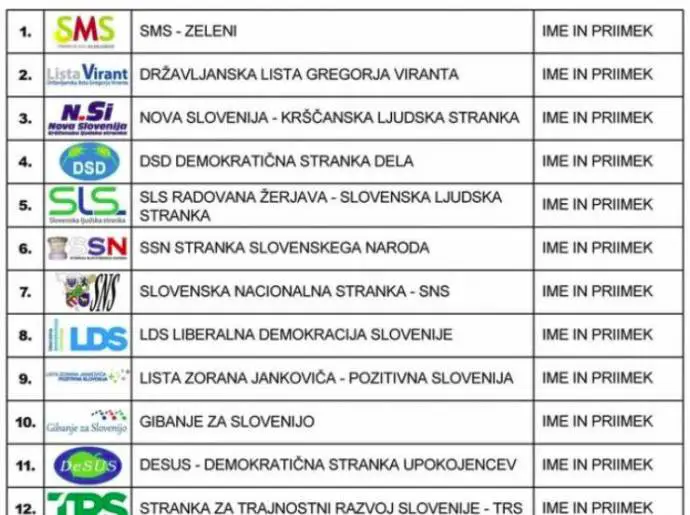Radio Slovenija editor Tanja Starič told the STA that Janez Janša is the biggest winner of Sunday's election, not only because of the clear relative victory but also because the result marks another comeback in a career that saw him on the edge of major defeats on several occasions.
Meanwhile, the editor of the web portal Domovina, Rok Čakš, noted that "while Janša and his SDS collected the lowest number of votes in the last five general elections, this number is still twice as high as that of the closest rival".
Both Čakš, who spoke of a leadership crisis on the left, and Starič also see the Party of Alenka Bratušek (SAB) among the winners of the election.
Čakš also highlighted the Left, the far-left party that doubled its result to 10 MPs from four years ago, and the National Party (SNS), which has managed to return to parliament after a seven-year absence.
The biggest loser of the election, according to Čakš, is the current coalition trio - the Modern Centre Party (SMC), the SocDems and the Pensioners' Party (DeSUS) - which won fewer votes in total than the strongest opposition party, meaning the Democrats (SDS).
Čakš feels SocDems leader Dejan Židan should be replaced and the party steered "towards a more moderate, centre-left politics".
He also mentioned DeSUS leader Karl Erjavec in this context, as did Starič, who feels the SocDems and SMC's results were relatively OK but still a cause for disappointment in both parties.
The two commentators agree that building a coalition in a situation featuring nine parties, most of which are unwilling to cooperate with Janša on top of that, will be a tough task.
Starič said that Janša, who will get the first chance to form a coalition, definitely had experience on his side. The question however is which of the parties outside of his bloc can afford to go back on their promise they would definitely not work with him.
If the runner-up, Kamnik Mayor Marjan Šarec and his list, get a chance to form a coalition, they will also have to include either the centre-right New Slovenia (NSi) or the Left.
"It is clear that Šarec's coalition would comprise a large number of parties with diverging platforms. Thus he would also need diplomatic and negotiating skills," Starič said.
Čakš, on the other hand, asserted for the STA that the only real chance for a strong and stable government is an SDS-led coalition that would also include the NSi and two centre-left parties.
"Business is already exerting pressure to bring about such a 'rainbow' coalition and important Slovenian foreign political partners will probably also be in favour. However due to the policy of exclusion towards Janša on the left, it seems unlikely," he said.
As to the prospect of a Šarec-led coalition, Čakš said that coordinating a coalition of so many strong partners would have even presented a problem to experienced leaders such as the late prime minister, Janez Drnovšek.
He feels Šarec, a complete novice in national politics, might be able to form a coalition, however a shaky one that could collapse very quickly and leave Slovenia without a driver amid unstable or even crisis conditions. This might be the scenario one should fear the most, he added.
While Čakš feels that a repeat election should definitely not be excluded, Starič sees it as the least likely scenario, one that everyone will try to avoid.
Other commentators have also looked at various possible scenarios, with Aleš Maver for instance writing for the Reporter website that the NSi's supporters would have a hard time accepting the party entering a centre-left coalition before all possibilities for a centre-left option are exhausted.
Grega Repovž of the weekly magazine Mladina on the other hand assessed that Janša's first comments indicate he and the country's President Borut Pahor are planning a scenario that would have Janša reject Pahor's offer to become the first prime minister-designate.
In protest of the alleged excluding of Janša by other parties, the pair will leave the "prima noctum" right to Šarec, whose inexperienced advisors will be up against emboldened political hacks in what will make for very complicated negotiations.
And the more complicated things will be getting, the more statesmanlike and wise the daily commentator of the developments, Janez Janša, will seem.






